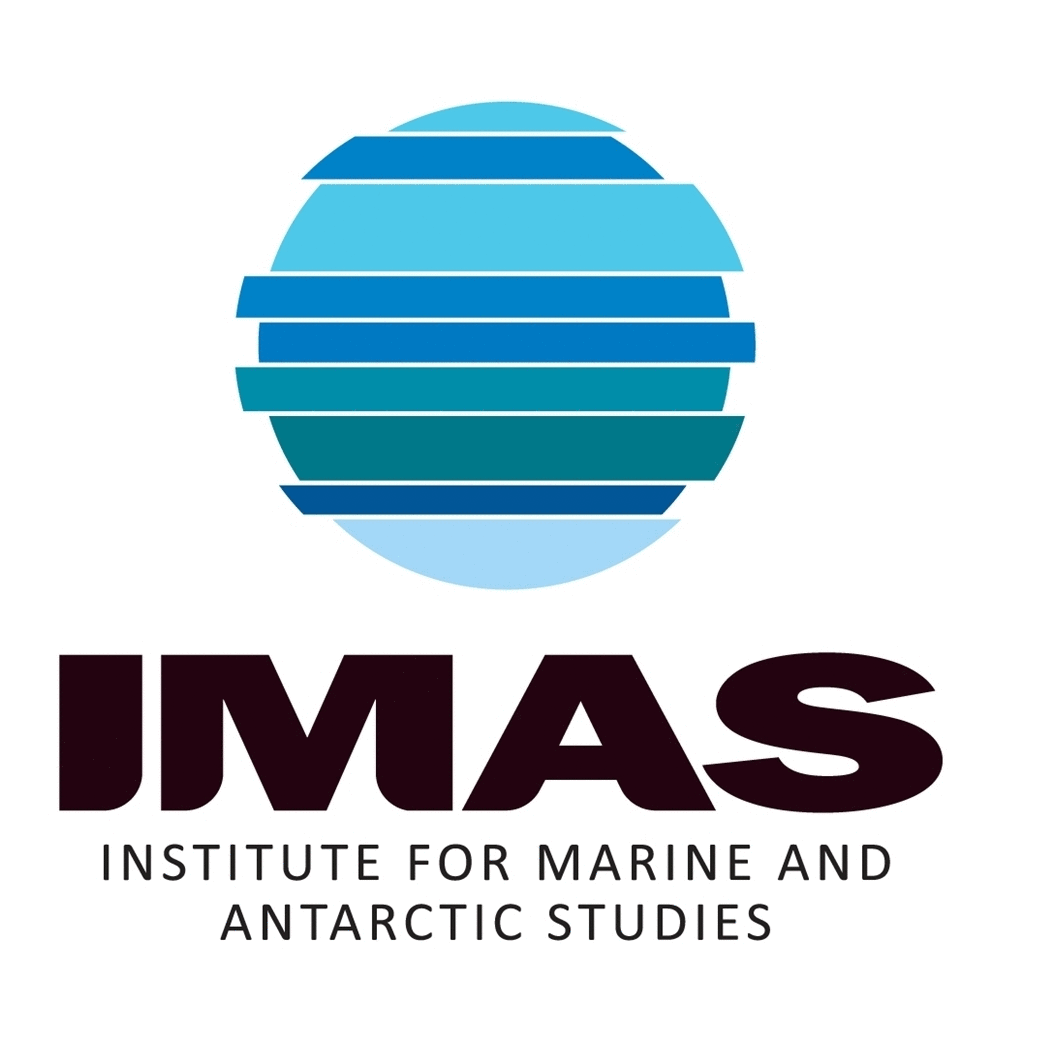Management options to minimise formation of urchin barrens: timed lobster swims - assessment of lobster size and abundance in south-eastern Tasmania
Characterisation of lobster (Jasus edwardsii) abundance and change in abundance at three different sampling sites (Cape Paul Lemanon, North Bay and Fortescue Bay) on the south-east coast of Tasmania, was assessed by GPS tracked SCUBA diver swims of 60 minutes in length whereby GPS was logged approximately every 5 seconds. Large tagged Rock Lobsters were introduced into one of the sampling sites, North Bay (which was closed to fishing). The swims are also being used to assess the impact of reef closure on the local lobster population.
Simple
Identification info
- Date (Creation)
- 2011-09-16T15:58:00
Principal investigator
Institute for Marine and Antarctic Studies (IMAS), University of Tasmania (UTAS) - Johnson, Craig, Prof.
IMAS-Sandy Bay
Private Bag 129
Hobart
TAS
7001
Australia
Collaborator
Institute for Marine and Antarctic Studies (IMAS), University of Tasmania (UTAS) - Ling, Scott, Dr (Research Associate)
IMAS-Sandy Bay
Private Bag 129
Hobart
TAS
7001
Australia
researchAssistant
Institute for Marine and Antarctic Studies (IMAS), University of Tasmania (UTAS) - Sanderson, Craig, Dr (Senior Technical Officer)
IMAS-Sandy Bay
Private Bag 129
Hobart
TAS
7001
Australia
- Purpose
- Assessment of Management Options to Minimise Formation of 'Barrens' Habitat by the Long-Spined Sea Urchin (Centrostephanus rodgersii) in Tasmania
- Credit
- Juan Gabriel Dominguez Sarimento
- Credit
- Funding: FRDC project 2007/045
- Status
- Completed
Principal investigator
Institute for Marine and Antarctic Studies (IMAS), University of Tasmania (UTAS) - Johnson, Craig, Prof.
IMAS - Sandy Bay
Private Bag 129
Hobart
TAS
7001
Australia
Collaborator
Institute for Marine and Antarctic Studies (IMAS), University of Tasmania (UTAS) - Ling, Scott, Dr (Marine Experimental and Quantitative Ecologist)
IMAS - Sandy Bay
Private Bag 129
Hobart
TAS
7001
Australia
- Spatial representation type
- Text, table
- Topic category
-
- Biota
Extent
N
S
E
W
))
Temporal extent
- Time period
- 2007-11-01T00:00:00 2011-02-28T00:00:00
Vertical element
- Minimum value
- 5
- Maximum value
- 20
- Identifier
- EPSG::5715
- Name
- MSL depth
- Maintenance and update frequency
- Not planned
Resource format
- Title
- Microsoft Excel (xlsx)
- Date
- Edition
- 2007
- Global Change Master Directory Earth Science Keywords v.5.3.8
-
- Oceans | Marine Biology | Marine Invertebrates
- Biosphere | Aquatic Habitat | Reef Habitat
- Oceans | Marine Biology | Marine Habitat
- Biosphere | Ecological Dynamics | Community Structure
- Keywords (Taxon)
-
- Jasus edwardsii
- Keywords (Theme)
-
- Abundance
- Size
- GPS locations
- Australian and New Zealand Standard Research Classification (ANZSRC): Fields of Research
- Keywords (Theme)
-
- Carapace length
- Sex
- Depth
- GPS location
Resource constraints
- Classification
- Restricted
Resource constraints
- Use limitation
- The data described in this record are the intellectual property of University of Tasmania through the Institute for Marine and Antarctic Studies
Resource constraints
- Linkage
-
http://i.creativecommons.org/l/by-sa/2.5/au/88x31.png
License Graphic
- Title
- Creative Commons Attribution-Share Alike 2.5 Australia License
- Website
-
http://creativecommons.org/licenses/by-sa/2.5/au/
License Text
- Other constraints
- The citation in a list of references is: citation author name/s (year metadata published), metadata title. Citation author organisation/s. File identifier and Data accessed at (add http link).
- Other constraints
- See point of contact for access to the data. Data will be available upon publication.
Associated resource
- Title
- FRDC project 2007/045
- Date (unknown)
- 2011-09-16T00:00:00
- Language
- English
- Character encoding
- UTF8
- Supplemental Information
- References: Final FRDC Report in draft format.
Content Information
- Content type
- Physical measurement
- Name
- Carapace length
- Name
- mm
- Name
- Sex
- Name
- Depth
- Name
- metres
- Name
- GPS location
Distribution Information
- Distribution format
-
- Microsoft Excel (xlsx)
Resource lineage
- Statement
- At each of the three south-east sites, 4 timed lobster swims were conducted per sampling occasion. Additional swims were conducted at North Bay, in an attempt to obtain more tag re-sightings for translocated lobsters. A GPS device floating on the surface logging at 5 second intervals was tethered to and towed by a diver in order to track the swim survey. The diver synched GPS time with dive computer/ wrist watch and recorded time at which lobsters were sighted (which was then corroborated with the GPS time to obtain a lat, lon). The swim direction was parallel to the coast line (along shore) whilst trying to maintain a steady depth and course. The duration of each swim is 60 minutes bottom time. Whilst trying to maintain a constant speed (about 0.25 m/s), it was a priority to look carefully into crevices and under big boulders, places where rock lobsters usually hide and aggregate for protection. When a lobster was found the diver recorded the time and depth of the encounter and estimated Lobster carapace length (mm). If the conditions permitted (no risk to lobster’s health), the diver caught the lobster to record sex and measure its carapace length using callipers. If the lobster was tagged, the tag number was also recorded. The lobster was returned to the same spot where it was found.
- Hierarchy level
- Dataset
Resource lineage
- Statement
- GPS used datum WGS84.
- Hierarchy level
- Collection hardware
Metadata
- Metadata identifier
- e6e0a5b6-6e6e-4c95-8730-e2337333b29c
- Language
- English
- Character encoding
- UTF8
Point of contact
Type of resource
- Resource scope
- Dataset
- Metadata linkage
-
https://metadata.imas.utas.edu.au/geonetwork/srv/eng/catalog.search#/metadata/e6e0a5b6-6e6e-4c95-8730-e2337333b29c
Point of truth URL of this metadata record
- Date info (Creation)
- 2020-09-17T17:56:59
- Date info (Revision)
- 2020-09-17T17:56:59
Metadata standard
- Title
- ISO 19115-3:2018
Overviews
Spatial extent
N
S
E
W
))
Provided by

Associated resources
Not available
 IMAS Metadata Catalogue
IMAS Metadata Catalogue